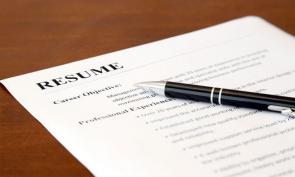
Consequently, anyone in search of a new job needs to be extra proactive. Excessive reliance on classified ads and recruiters is a particularly poor job search strategy in this environment.
Instead, a sustained networking effort is much more likely to produce results.
In this column, I do not plan to revisit the basics of networking. For that, you may want to follow the links under "career resources" on my website.
But since the weather is nice and networking is in the air, I thought the subject was worthy of revisiting.
In some ways, networking is a lot like a first date. When done right, a networking meeting is more like a social encounter than a business meeting.
A while ago, I found a list of do's and don'ts for first dates in the Calendar section of The Boston Globe (see March 16, 2000). With some added commentary, I think that these tips are relevant to cultivating professional relationships.
Eight Do's Of First Dates ...
1. Do listen carefully to one another
Commentary (i.e., how this dating tip relates to professional networking): Good listening skills are critical for relationship building. If you want to build a strong network, spend most of the time trying to find out what is of interest or concern to the other professional.
The more you know about the other individual, the easier it is to find ways that you can be of help to them. In turn, they will be more likely to remember you and more likely to think of you when something relevant crosses their desk.
2. Do settle on who will pay before going out
Commentary: In professional dating, the rule is a little different. When you ask somebody to give you their time, you should always offer to pay, and there is no need to mention this at the time you make plans to get together.
Caveat: if the other party insists on paying when the check comes, do not make it uncomfortable for them. Let them pay.
3. Do admit that you are nervous or shy, instead of talking too much or not at all
Commentary: In professional situations, you should strive to be yourself. People appreciate it when you are willing to show some weakness rather than struggle to be someone you are not. But don't act like you expect the other person to solve all of your problems. They are a potential resource, not your therapist.
4. Do suggest options for how to spend the date
Commentary: Have a game plan in mind when you contact the individual. You will sound more prepared and focused if you have a particular suggestion.
On the other hand, be flexible enough to accommodate the needs of the individual you are trying to meet. Maybe they do not have time for lunch or prefer to have you come to their office.
5. Do anticipate surprises — be they good or bad
Commentary: While this meeting may be very important to you, the other individual may remember little or nothing about the reason you are getting together. Don't be surprised if you need to take some time to reeducate them.
6. Do note the little, usual things that you might have in common
Commentary: Finding common interests is a good way to build rapport. It may also provide you with some ideas on how you can help the other individual.
7. Do make sure you have your own means to get home, if necessary
Commentary: When you contact someone for networking purposes, don't take a lot of the person's time getting directions to their office. You can always check their website or call back and ask the receptionist. Of course, if they want to give you directions, it is okay to keep them on the phone.
8. Do give him or her another chance and a second date (unless the first date was an utter failure)
Commentary: If you did not click with a date, you would probably not follow up with him or her. When you are building professional relationships, you should always follow up with a thank-you note, even if you did not care for the person.
Even better is to think of something you can send the individual at some future point (e.g., an article that you think might interest them). Keeping up contacts over time is critical to networking success.
When you are dating, you are looking for a special someone. Networking is different. While it is always nice to connect with the "right" people (i.e., individuals who seem well-connected), it is more important to have a good connection with the people in your network.
Do not expect to click with everyone you try to meet. Networking is a volume business and making a large number of contacts is much more important than meeting with any one individual.
... And Eight Don'ts
1. Don't talk about the ex unless he or she does
Commentary: The conventional wisdom in a job interview is that you should never say anything negative about a past or present employer. The rationale is that if you do, the prospective employer will presume that you are equally likely to badmouth them once you come to work.
A networking situation is a little different. Since the nature of the meeting is to get career advice, you may be more apt to tell the individual what is not working for you at your current job. But try to do it diplomatically without focusing too much blame on your employer.
2. Don't make a long, intensive first date — there is always time for a second date
Commentary: It is okay to have a long networking lunch, coffee or drop-in meeting. The important thing is to give the other individual ample opportunity to wrap things up in a reasonable amount of time. In other words, ask questions that show a sensitivity to their time constraints.
If things are going well, however, and the other individual seems happy to continue schmoozing, then by all means, keep it going unless you need to get somewhere yourself.
3. Don't shred your napkin or display other annoying table habits
Commentary: Annoying habits or body language can leave a bad impression.
4. Don't drink too much — you may regret the loss of inhibitions
Commentary: Don't drink alcohol at a business meeting.
5. Don't be obsessed about whether your date is having a good time (asking once or twice is enough)
Commentary: While it is nice to be deferential to a professional contact who is making time to meet with you, don't go overboard in thanking them. A good professional thank you will do.
6. Don't be rude to wait staff or others attending to you
Commentary: Be respectful of support staff. If time permits, you may even want to strike up a conversation with the receptionist or secretary to learn more about the organization or the individual with whom you are meeting.
7. Don't linger on the goodbye
Commentary: Know when it is time to leave or say goodbye; you don't want to be the guest who wouldn't leave.
8. Don't change your medication on the same day
Commentary: Don't change your medication on the same day.
Conclusion
There are no hard and fast rules about networking. Your success will depend in part on your own persistence, although there is also an element of luck involved.
But if you follow some of these rules of etiquette, you'll find what you are looking for quicker and you will build a stronger network that you can tap into the next time you are in search mode.
The best networkers realize that you are never done networking and that the best time to network is when you do not need anything but just want to build relationships. So what are you waiting for?
About Harrison Barnes
Harrison Barnes is a prominent figure in the legal placement industry, known for his expertise in attorney placements and his extensive knowledge of the legal profession.
With over 25 years of experience, he has established himself as a leading voice in the field and has helped thousands of lawyers and law students find their ideal career paths.
Barnes is a former federal law clerk and associate at Quinn Emanuel and a graduate of the University of Chicago College and the University of Virginia Law School. He was a Rhodes Scholar Finalist at the University of Chicago and a member of the University of Virginia Law Review. Early in his legal career, he enrolled in Stanford Business School but dropped out because he missed legal recruiting too much.
Barnes' approach to the legal industry is rooted in his commitment to helping lawyers achieve their full potential. He believes that the key to success in the legal profession is to be proactive, persistent, and disciplined in one's approach to work and life. He encourages lawyers to take ownership of their careers and to focus on developing their skills and expertise in a way that aligns with their passions and interests.
One of how Barnes provides support to lawyers is through his writing. On his blog, HarrisonBarnes.com, and BCGSearch.com, he regularly shares his insights and advice on a range of topics related to the legal profession. Through his writing, he aims to empower lawyers to control their careers and make informed decisions about their professional development.
One of Barnes's fundamental philosophies in his writing is the importance of networking. He believes that networking is a critical component of career success and that it is essential for lawyers to establish relationships with others in their field. He encourages lawyers to attend events, join organizations, and connect with others in the legal community to build their professional networks.
Another central theme in Barnes' writing is the importance of personal and professional development. He believes that lawyers should continuously strive to improve themselves and develop their skills to succeed in their careers. He encourages lawyers to pursue ongoing education and training actively, read widely, and seek new opportunities for growth and development.
In addition to his work in the legal industry, Barnes is also a fitness and lifestyle enthusiast. He sees fitness and wellness as integral to his personal and professional development and encourages others to adopt a similar mindset. He starts his day at 4:00 am and dedicates several daily hours to running, weightlifting, and pursuing spiritual disciplines.
Finally, Barnes is a strong advocate for community service and giving back. He volunteers for the University of Chicago, where he is the former area chair of Los Angeles for the University of Chicago Admissions Office. He also serves as the President of the Young Presidents Organization's Century City Los Angeles Chapter, where he works to support and connect young business leaders.
In conclusion, Harrison Barnes is a visionary legal industry leader committed to helping lawyers achieve their full potential. Through his work at BCG Attorney Search, writing, and community involvement, he empowers lawyers to take control of their careers, develop their skills continuously, and lead fulfilling and successful lives. His philosophy of being proactive, persistent, and disciplined, combined with his focus on personal and professional development, makes him a valuable resource for anyone looking to succeed in the legal profession.
About BCG Attorney Search
BCG Attorney Search matches attorneys and law firms with unparalleled expertise and drive, while achieving results. Known globally for its success in locating and placing attorneys in law firms of all sizes, BCG Attorney Search has placed thousands of attorneys in law firms in thousands of different law firms around the country. Unlike other legal placement firms, BCG Attorney Search brings massive resources of over 150 employees to its placement efforts locating positions and opportunities its competitors simply cannot. Every legal recruiter at BCG Attorney Search is a former successful attorney who attended a top law school, worked in top law firms and brought massive drive and commitment to their work. BCG Attorney Search legal recruiters take your legal career seriously and understand attorneys. For more information, please visit www.BCGSearch.com.
Harrison Barnes does a weekly free webinar with live Q&A for attorneys and law students each Wednesday at 10:00 am PST. You can attend anonymously and ask questions about your career, this article, or any other legal career-related topics. You can sign up for the weekly webinar here: Register on Zoom
Harrison also does a weekly free webinar with live Q&A for law firms, companies, and others who hire attorneys each Wednesday at 10:00 am PST. You can sign up for the weekly webinar here: Register on Zoom
You can browse a list of past webinars here: Webinar Replays
You can also listen to Harrison Barnes Podcasts here: Attorney Career Advice Podcasts
You can also read Harrison Barnes' articles and books here: Harrison's Perspectives
Harrison Barnes is the legal profession's mentor and may be the only person in your legal career who will tell you why you are not reaching your full potential and what you really need to do to grow as an attorney--regardless of how much it hurts. If you prefer truth to stagnation, growth to comfort, and actionable ideas instead of fluffy concepts, you and Harrison will get along just fine. If, however, you want to stay where you are, talk about your past successes, and feel comfortable, Harrison is not for you.
Truly great mentors are like parents, doctors, therapists, spiritual figures, and others because in order to help you they need to expose you to pain and expose your weaknesses. But suppose you act on the advice and pain created by a mentor. In that case, you will become better: a better attorney, better employees, a better boss, know where you are going, and appreciate where you have been--you will hopefully also become a happier and better person. As you learn from Harrison, he hopes he will become your mentor.
To read more career and life advice articles visit Harrison's personal blog.





